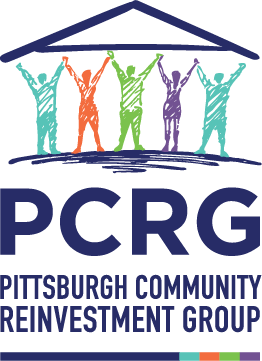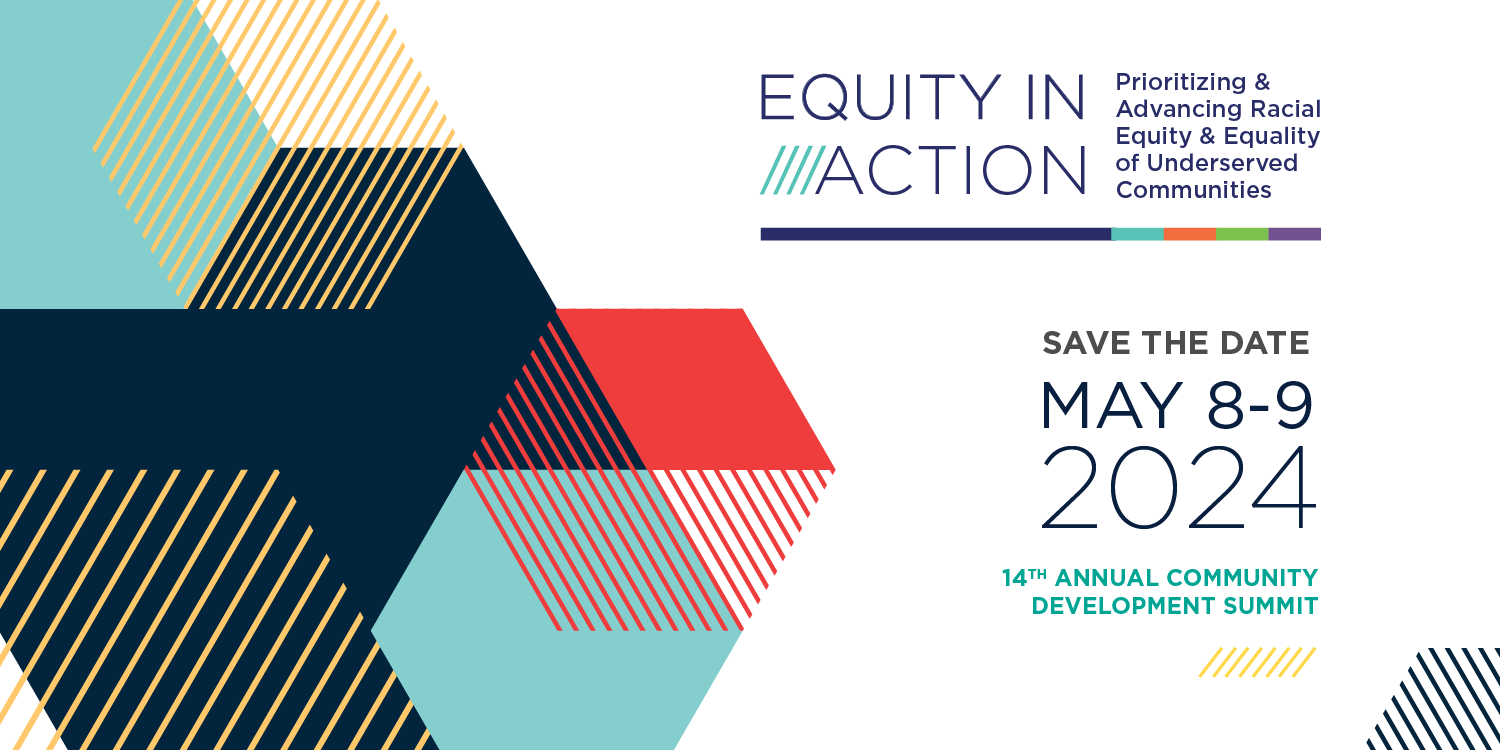Call for Presenters
Pittsburgh Community Reinvestment Group (PCRG) and Urban Land Institute–Pittsburgh District Council (ULI) are excited to announce our 14th Annual Community Development Summit – in-person on May 8-9 at Pittsburgh’s Omni William Penn Hotel. The two-day event attracts a network of industry practitioners from all over the country – and we’re now seeking and accepting session proposals until noon on March 19, 2024. Selected sessions will be diverse in subject matter, content, and format. Preference will be given to sessions that present a range of perspectives on a particular topic and/or represent multiple geographies.
The summit's theme this year, “Equity in Action”, will explore action steps in prioritizing and advancing racial equity and equality within underserved communities. Participants will hear from industry experts who can speak about initiatives and projects that further racial equity, how they’re implemented and how success is defined when it comes to doing the work.
If you oversee a project, initiative or program that works to advance equity and equality – we would be honored to have you submit a session proposal.
Founded in 1988 to combat bank redlining, PCRG builds the capacity of community development leaders to achieve racial and economic equity in the Allegheny region. Today, our advocacy work focuses on capacity building and advancing Black wealth with community members at the table and fully engaged. PCRG uses education, policy, and advocacy to address blight, infrastructure - mobility, community banking, asset creation and fair lending.
Pittsburgh’s reinvention is producing success at the expense of its most vulnerable residents. Built on antiquated systems and institutions that are the legacy of redlining which are fundamentally biased toward people of color, women, and low- to moderate- income individuals, as well as those with disabilities. PCRG does not accept these detriments as markers of success. Current census data shows the city lost 12% of its working Black residents and the median income increased, indicating the socioeconomic, racial, and gender divides are also only growing. Leaders in our field are thirsty for a genuine discussion, to learn how others, like you, are changing this dynamic and leading action to tangible change that delivers meaningful equity and equality to marginalized communities.
The summit brings together 600+ attendees from a dozen states throughout the Great Lakes and Mid-Atlantic regions, representing the entire community development ecosystem: community members, students, for- and non-profit developers, bankers, philanthropists, advocates, activists, and public sector leaders. We hope you will take advantage of this opportunity to share your experience, wisdom, and knowledge with our summit attendees.
Overview:
Proposal Criteria and Selection Process – Please read carefully.
As a convener, PCRG recognizes the importance of sharing resources and forming a collective impact to improve the health and equality of communities and their residents.
A committee comprised of PCRG’s team members, foundation, university, CDC, financial and intermediary partners will select 12 sessions and two (2) Plenary Panels. PCRG works diligently to ensure that session content is interesting, relevant, timely, fresh, and non-duplicative.
Successful session proposals will meet the criteria listed below. They will provide concrete examples of experiences presenters have had or practical tools, and research to inform attendees’ work. Sessions will offer ideas and strategies that practitioners will be able to take away with them. As such, you may be asked to revise your session proposal or combine it with another session. Please contact your proposed presenters and be prepared to provide a session description, contact information, headshots and bios for all participating presenters before submitting a proposal.
Values:
We believe advocacy, coalition-building, and collective impact play a crucial role in addressing systemic issues.
We value listening to diverse leaders from different races, genders, orientations, identities, ages, economic classes, sectors, and industries – especially within individual session presentations.
We believe our sector needs practitioners who are informed, capable, and excellent.
We believe it’s essential to consistently learn and grow. That said, we value those who acknowledge and learn from failure as well as success.
We value presenters who are willing to discuss difficult professional topics with nuance, complexity, honesty, and vulnerability.
We believe inclusive communities have opportunities for all, and that necessitates investments in both the place and people to enhance quality of life.
Evaluation of proposals:
Clearly articulated session focus and end goal for attendees.
Sessions have a full slate of presenters qualified to present by their experience, participation in a projector by a qualified individual ready to work with others.
Thoughtfully developed and ready-to-present session ideas and structures. Session proposals are not incomplete.
Panels reflect geographic, demographic, economic, and social diversity.
The topics are important, timely, and relevant to the summit audience.
Session proposals are not an advertisement for a program or organization.
Session should not present a program that cannot be replicated.
Have an idea, but not sure how to present it? Want to know if your proposed session is a good fit for the summit? Need help identifying co-presenters or panelists? Or, to discuss an idea, please contact Bobby Dennis, Director of Logistics & Summit Coordinator, by phone at 412-277-5691, or via email at cdsummit@pcrg.org
Logistics and Details:
Format and LengthCD:
Sessions will be 75 minutes each. Presenters are encouraged to consider alternate formats for lectures and presentations, including World Café, discussions, roundtables, panels, and debates.
Organizer and Presenters:
Each session should have no more than five presenters. The presenter who submits the session proposal is considered the session organizer and, therefore, the point of contact. Session submissions should include complete contact information for the session organizer and all presenters. The session organizer will be responsible for communicating regularly with the other session presenters, PCRG staff and the Summit Steering Committee. If your session is selected, please be prepared to submit a brief bio and headshots for the presenters.
Title:
Presenters should submit a title with their session but should be aware it may be changed to describe the session more effectively at the Session Steering Committee’s discretion.
Description:
Sessions should be submitted with a complete description, with a length of no more than 1000 characters.
Topics:
We ask that presenters create sessions that either answer one of the questions below, address one of our topic areas, or both.
Questions to Answer:
How can you start an initiative or program off well? How can you build on your success?
What worked, and what did not work?
How do you recognize and make changes when things are not working?
Topic Areas:
Sessions can address topics including, but not limited to:
Community Development
Equity in real estate finance, design, and development.
Black and minority homeownership programs that build and sustain wealth.
Housing policy that centers equity and equality in communities;
Planning inclusive communities for all.
Building Equatiable Main Street Economies:
Business district development.
Small business initiatives for minority- and women-owned businesses.
Workforce development programs.
Innovative and engaging youth programing.
Equity, Equality and Enhancing Quality of Life:
Investing in minority communities, without displacement.
Programs that prioritize and invest in minority or Black developers.
Bank programs focused on building Black and minority wealth.
Equity in connectivity and broadband infrastructure.
Innovative financial education programs for asset and wealth-building.
Community and social services that focused on elevating residents’ mental health and tackling stigmas associated with seeking help.
Best practices in Transit Oriented Development to advance communities of color.
Community Organizations of Tomorrow
Collaborative partnerships, Collective Impact Model.
Innovative programing models that engage communities meaningfully and leverage capacity.
Community organizing strategies that promote equality and race relations, include youth, develop, and help instill.
Organizational and leadership training and development.
Session proposals beyond topics listed above should be able to make a clear case for why their topic is furthering equity and equality in underserved communities.
Sessions that encapsulate the topics above, hold true to PCRG’s mission and can present lessons learned from programs put on by nonprofits, government, activist groups, block watches, businesses, foundations, and any combination of the above groups will rate higher during deliberation.
Sessions can also address how local regional partnerships, state, and national legislation relate to community and economic development, including but not limited to the Community Reinvestment Act; the Fair Housing Act; the Neighborhood Assistance Program, Community Development Block Grants; government budgets; and programs like Land Banking, Land Trusts, and minority home ownership initiatives.
Session Submission:
To submit a session, please visit PCRG’s Community Development Summit web page here.
As noted above, please submit your session proposal by noon on March 19, 2024.
GET CONNECTED
Follow PCRG on Twitter, Facebook, and sign up for our e-newsletter to be updated about the Summit!

